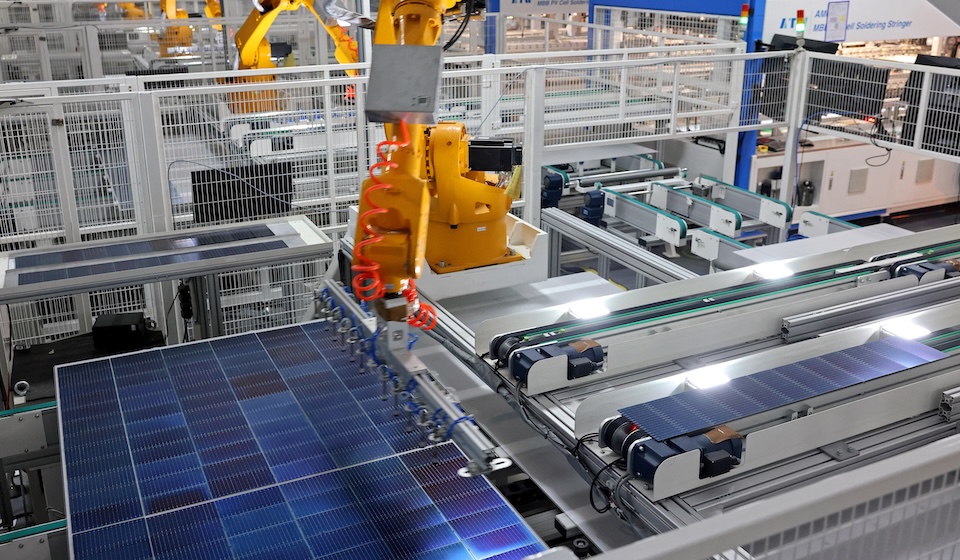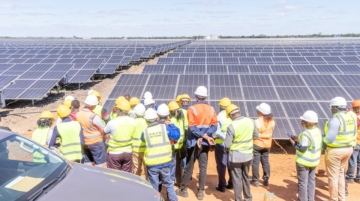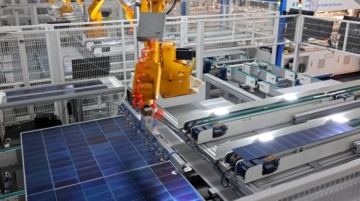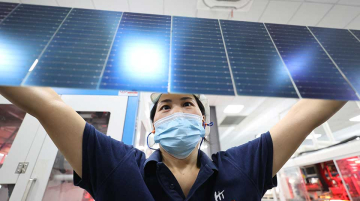
Nigeria imported Chinese solar panels last year with a combined capacity of 1,721 megawatts (MW)- enough to power roughly half a million homes.
The country now ranks as Africa’s second-largest importer, trailing only South Africa and ahead of Morocco and Algeria.
In the long run, however, the outlook may shift despite the Nigerian government’s decision earlier this year to step back from a proposed ban on solar panel imports. The halt was intended to give time to refine the policy, emphasizing joint ventures, tariff adjustments, and capacity building as tools to support local industry rather than imposing an abrupt ban.
The international consultancy PricewaterhouseCoopers advised the Nigerian government to implement a gradual phase-down of imports over three to five years, a move it says would give domestic manufacturers the space to scale production, meet demand, and put in place strong quality control systems.
And now, some Nigerian and Chinese companies are moving to establish local solar panel manufacturing, a strategy aimed at addressing some of the issues related to expanding energy access and creating jobs.
Tranos, a Nigerian energy firm, broke ground over the summer on an 800-MW solar panel factory, one of the largest in West Africa. The plant is expected to initially employ 160 people, with the workforce projected to grow to 400 within two years.
And since 2023, the Nigerian government has partnered with China Great Wall Industry Corporation to establish a solar cell production facility in Gora, a region rich in silicon and silica, the key raw materials for solar cell manufacturing.
This marks not only a key step in Nigeria’s efforts to localize the production of renewable energy equipment but also progress in moving up the manufacturing value chain.
However, the reality is that the solar panel manufacturing business requires substantial quantities of water, energy, and skilled labor. The Chinese companies have perfected the solar panel value chain and heavily automated the processes.
This means that since most solar panel building operations are concentrated in China, local manufacturing will still be heavily dependent on Chinese entities and will be difficult to localize in Nigeria.
Nicola Licata, a Shanghai-based environmental social governance (ESG) project manager, notes, “Logistics will be an issue for all of these African countries because supply chains for upstream wafer, ingot, poly, MGS, and quartz are still anchored in China to a huge degree.”
While Nigeria may have some of the skilled labor needed for solar manufacturing, it lacks a reliable and accessible water supply needed for large-scale manufacturing due to poor management and inadequate infrastructure.
In addition, as Nigeria builds new factories, Chinese companies are also looking to set up manufacturing operations outside China. Their goals include cutting transportation and labor costs and sidestepping U.S. sanctions — potentially creating additional competition for local firms.
Despite all the advantages local manufacturing has, Licata notes, “Overall, I’d say African manufacturing will be limited to downstream module for a long time because it’s being used to avoid tariffs for finished product exports and definitely because of the energy and water resources issue.”
“Chinese manufacturers’ interest in using African nations as a non-China or non-Southeast Asia location is meant to avoid tariffs,” she added. “But also has the potential to evaporate given whichever way Trump and the EU go,” said Licata.
However, for Tobi Oshodi, a lecturer at Lagos State University, producing locally is preferable to importing everything because it creates more employment and improves local skill development.
“And if you like, in an increasingly complicated world, it gives you some level of independence. What gives you the impression is that China is thinking of having a system that would be more reliant on the Chinese economy itself than on the outside world and things like that… So if that is the ultimate goal, what happens if there is a Chinese Donald Trump, for example, that just wants to cut off and isolate itself from the continent?”
“And in an increasingly complicated world, this gives you a degree of independence. It suggests that China is aiming to build a system more reliant on its own economy than on the outside world. If that is indeed the ultimate goal, what happens if one day there is a ‘Chinese Donald Trump’, a leader who chooses to cut off ties and isolate China from the continent?”
In such a scenario, Oshodi says that only countries that have built some of this local capacity that the policy envisions will survive.
With more companies setting up, he also advocates for Chinese companies to invest more locally, “so that you can get more profit than your counterparts in China that really want to continue importing.”As local manufacturing begins to take shape, more than one-third of Nigerians still lack access to electricity. Frequent grid collapses make power supply unreliable, which in turn makes both solar panel manufacturing and imports appealing alternatives.










